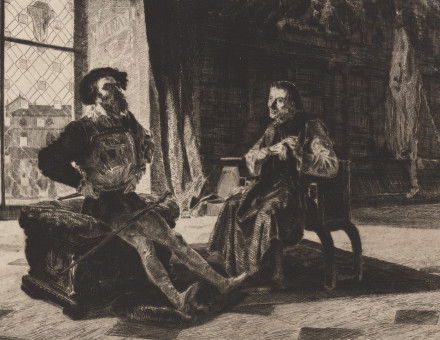Sir Robert Dudley: Expatriate in Tuscan Service
Neil Ritchie describes the long and busy career of the son of the famous Earl of Leicester: Robert Dudley sought employment with an Italian Grand Duke and distinguished himself as navigator, map-maker, naval architect and builder of maritime fortifications.



